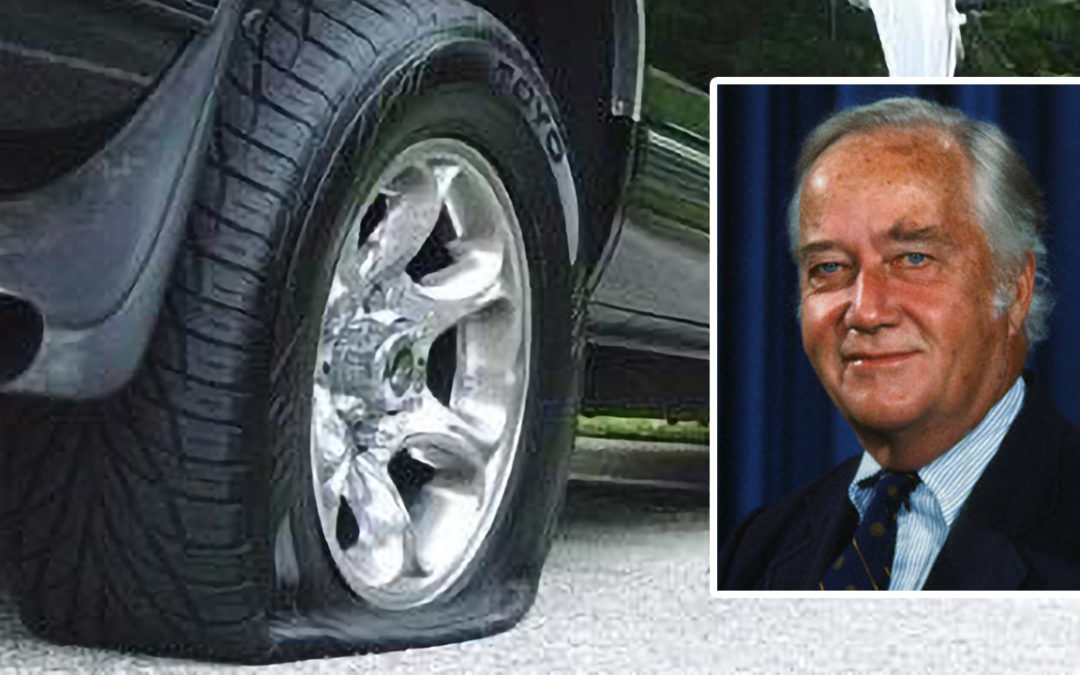You can call it “fake news” or the subjugation of truth, but when confronted by self-serving diatribes and obstructionist partisan arguments, I saw several witnesses at the impeachment hearings persist and tell the truth — or at least preserve its credibility — no matter how difficult that was for them.
When I was a driver for U.S. Senator Charles “Mac” Mathias’s (R-MD) during the Watergate proceedings, news and politics were different than today. Credibility was everything.
On TV, Walter Cronkite delivered the truth on the CBS Evening News. He was voted the most trusted man in America.
The newspapers never had that power of personality, but they doggedly stood behind their stories, even when they relied upon undisclosed sources like “Deep Throat.” They knew they were at risk every day.
Credibility sold the news, and advertising, and paid for heavy overhead and lots of investigative reporters.
Today, news sources on the web do not need credibility. They have followers instead.
They are also not at risk because they have few, if any expenses, and are often not even identifiable. Social media is flooded with unverifiable news sources, some of which are paid for by our enemies as they seek to disrupt our country’s elections.
Senator Mathias was from Frederick, Maryland — farm country — two hours west of DC. He was fiercely loyal to his city and his state. He cherished his reputation for integrity and his nickname, “The Conscience of the Senate.”
It was different back then, but it is still the same.
I was driving Mathias when he was summoned by President Nixon to an afternoon rally the next day. Mathias was to be filmed beside Nixon for the evening news that night. Mathias had, in essence, been summoned to give the President an unspoken endorsement in Maryland’s Washington suburbs, in Mathias’s home state.
Maryland is an overwhelmingly Democratic state. Mathias was no fan of Nixon and Nixon knew it, but Nixon was a Republican and so was Mathias.
Credibility was everything to Mathias but he couldn’t say “no” to the president without punishment from his party.
I picked the Senator up at his home that morning and we headed to his scheduled meetings.
The first thing he said to me as he got into the car was, “looks like that tread on the left rear tire is thin.”
After the morning meetings and before lunch, I offered to take the car to get the tire checked, but Mathias said he wanted me inside to record his speech on the handheld tape recorder I always carried with me for such occasions. He made sure he was never misquoted.
After lunch, as he got into the car he pointed and asked me, “You think it looks like that tread is dangerous?”
I insisted that I get the tire checked immediately so we would be on time for the rally.
The Senator thought for a judicious moment. “I think you are right, Bob. Let’s get it looked at.” But as I turned into a filling station he quietly said, “I have always bought my tires up at the Goodyear store in Frederick.”
By the time we got back to Washington, the rally was over. As I let him out of the car that night, he asked me to remind him to send his apologies to the White House.
To maintain credibility in the face of power, persistence may not always offer the opportunity to speak the truth. But at least it’s a statement on its own: the resistance is a placeholder for the truth, and it retains our gravity.
It is different now, but it remains the same.

